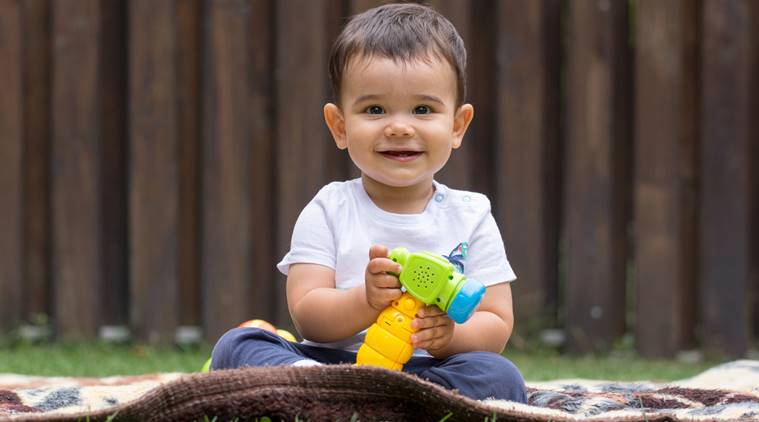
According to the study, infants actually combine information from first-hand experiences and that of others they observe, and decide whether to continue trying to reach their goal or solve a problem.

We usually have a good laugh looking at infants engaging in random activities or just trying to imitate adults. Turns out, they are not simply whimsical after all, or so says a new study.
According to a study by researchers at the University of Toronto, Arizona State University and the University of Washington, infants actually combine information from first-hand experiences and that of others they observe, and decide whether to continue to reach their goal or solve a problem.
“The most remarkable thing we saw was how quick infants are to discern when to ask for help with something, and from who to ask for it,” Jessica Sommerville, senior author of the paper and professor, department of psychology, University of Toronto’s Faculty of Arts & Science, was quoted as saying by the university’s official site.
For the study, 96 infants, each 18 months old, were reportedly provided with social cues and first-hand experiences. On the table in front of them was placed a clear box with a toy inside. The researcher on the other side of the table showed the kid how to pull the box with the rope attached to it. And then the infants, divided into three groups, were made to try the same.
Depending on the various adjustments made in the experiment, toddlers, like adults, were found to list all pros and cons before reaching a decision, impacting their act of pulling the box, added Sommerville.
Read| 7 activities to boost your baby’s cognitive development
“The infants who saw the experimenter easily move the box traded off trying for help-seeking, suggesting that they realised the most adaptive strategy in that context was to get help from someone who can solve the problem,” lead author and assistant professor of psychology at ASU, Kelsey Lucca was quoted as saying. Again, infants who found the experimenter struggling but finally succeed needed the least amount of support to solve the task, “suggesting that demonstrations of hard work and effort have carry over effects that impact infants’ motivation in future tasks,” as per the researcher.
Read| Sensory skills to watch out for, as your child learns to roll, crawl and walk
The researchers also inferred that children’s facial expressions showed positive and negative emotions while attempting to move the box, specially when the experimenter managed to easily pull the box while they could not. “It seems intuitive that the experience of kids facing a challenge is inherently frustrating, but we found that the mismatch between expectations and experience is actually what is frustrating,” Sommerville said.
The study was published in the journal Nature Human Behaviour.
For all the latest Parenting News, download Indian Express App
Source: Read Full Article


